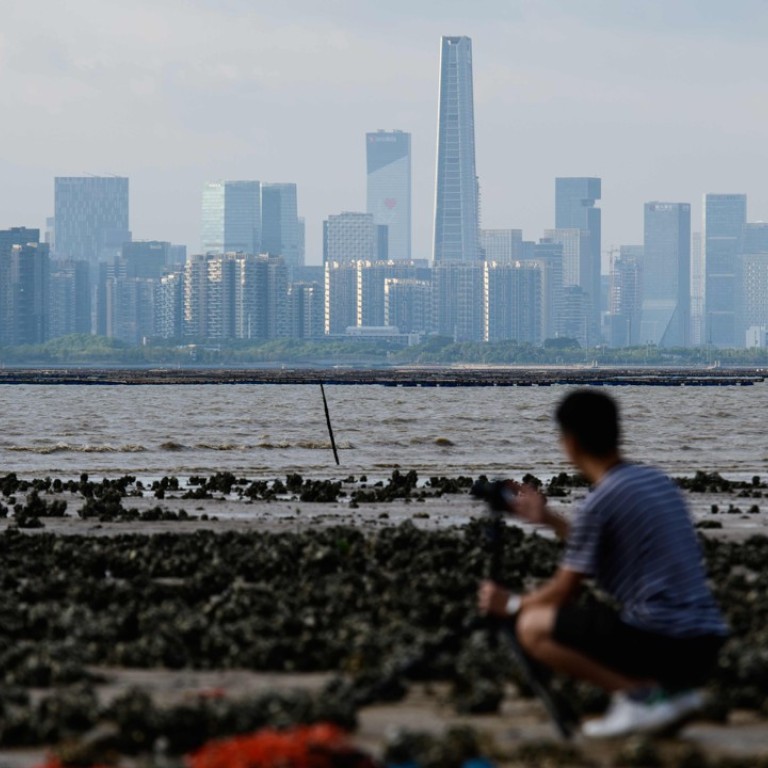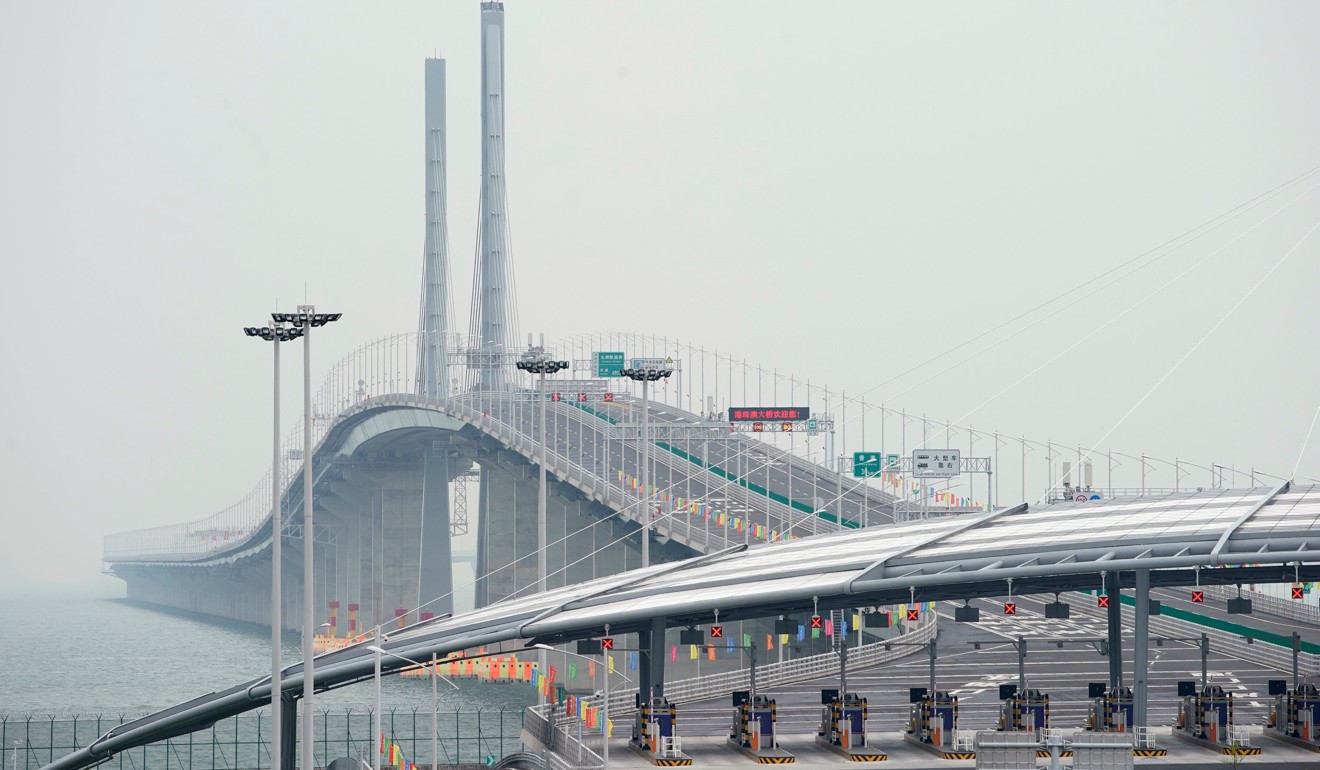
Work needed to sell Hongkongers ‘Greater Bay Area’ dream as study finds 54 per cent did not set foot in project’s mainland Chinese cities in past year
- Three biggest deterrents were food safety, law and order and transport
- Professor urges officials to step up promotion of opportunities
Only one in 13 Hongkongers currently work in a mainland city included in the integration drive, and 42.5 per cent of people said a fear of losing government benefits would stop them leaving Hong Kong.
The study, released on Tuesday, was a joint project between Hong Kong’s Lingnan University and Sun Yat-sen University in Guangzhou. It showed 54 per cent of Hongkongers had not set foot in a bay area city outside Hong Kong and Macau in the past year.
The three biggest deterrents were “food safety”, “law and order”, and “transport”.
Carried out between August 15 and 27, the poll interviewed 1,033 Hongkongers on their perceptions of the bay area project.
The development strategy is said to be the brainchild of Chinese President Xi Jinping, and seeks to transform Hong Kong, Macau and nine Guangdong cities into an integrated financial and technology hub.
Subsidies to help young Hong Kong entrepreneurs set up shop in ‘Greater Bay Area’
The nine mainland Chinese cities in the blueprint are Guangzhou, Shenzhen, Zhuhai, Foshan, Dongguan, Zhongshan, Huizhou, Jiangmen and Zhaoqing.
The study found that among Hongkongers who had visited one of these cities over the past year, almost 60 per cent said one of their reasons was to sightsee, while 24.5 per cent cited “visiting friends and relatives”.

Some 20.5 per cent travelled there for the “good food”. “Entertainment” was the biggest pull factor.
Only 80 respondents, or 7.7 per cent, said they had been working.
Presenting the survey findings, Lingnan University vice-president Professor Joshua Mok Ka-ho urged the Hong Kong government to step up promotion of opportunities offered by the project.
“It seems many Hong Kong people don’t know what the regional development plan is about,” Mok said.
Greater Bay Area plan given thumbs up from private businesses, survey finds
He acknowledged that the rise of localist sentiment in Hong Kong in recent years might have discouraged some city residents from learning more about the mainland.
But Mok hoped the opening of a cross-border high-speed rail link last month and the 55km Hong Kong-Zhuhai-Macau Bridge on Wednesday would facilitate further interaction.
He called on the Hong Kong government to work with mainland authorities in the bay area to allow some local social welfare schemes, such as health care vouchers and old-age allowances, to be extended to cover Hongkongers living elsewhere.

